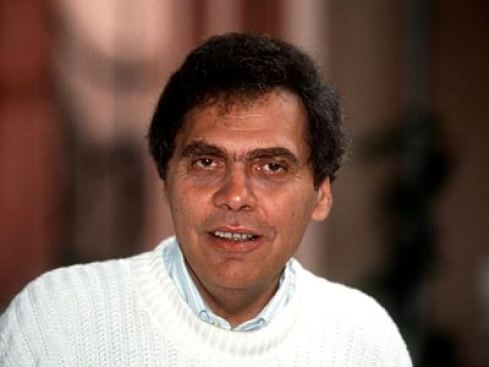Great Throughts Treasury
This site is dedicated to the memory of Dr. Alan William Smolowe who gave birth to the creation of this database.

Neil Postman
American Humanist Author, Media Theorist and Cultural Critic
"Whereas ethnic pride wants one to turn inward, toward the talents and accomplishments of one?s own group, diversity wants one to turn outwards, towards the talents and accomplishments of all groups."
"Who knows what schools will be like twenty-five years from now? Or fifty? In time, the type of student who is currently a failure may be considered a success. The type who is now successful may be regarded as a handicapped learner ? slow to respond, far too detached, lacking in emotion, inadequate in creating mental pictures of reality. Consider: what Thamus called the "conceit of wisdom" ? the unreal knowledge acquired through the written word ? eventually became the pre-eminent form of knowledge valued by the schools. There is no reason to suppose that such a form of knowledge must always remain so highly valued."
"With television, we vault ourselves into a continuous, incoherent present."
"With the invention of the clock, Eternity ceased to serve as the measure and focus of human events."
"With the possible exception of those human encounters that Fritz Peris calls ?intimacy,? all human communications have deeply embedded and profound hidden agendas. Most of the conversation at the top can be assumed to be bullshit of one variety or another."
"With the rise of Technopoly, one of those thought-worlds disappears. Technopoly eliminates alternatives to itself in precisely the way Aldous Huxley outlined in Brave New World. It does not make them illegal. It does not make them immoral. It does not even make them unpopular. It makes them invisible and therefore irrelevant. And it does so by redefining what we mean by religion, by art, by family, by politics, by history, by truth, by privacy, by intelligence, so that our definitions fit its new requirements. Technopoly, in other words, is totalitarian technocracy."
"Writing is defined as a conversation with no one and yet with everyone."
"You cannot avoid making judgments but you can become more conscious of the way in which you make them. This is critically important because once we judge someone or something we tend to stop thinking about them or it. Which means, among other things, that we behave in response to our judgments rather than to that to which is being judged. People and things are processes. Judgments convert them into fixed states. This is one reason that judgments are often self-fulfilling. If a boy, for example, is judged as being "dumb" and a "nonreader" early in his school career, that judgment sets into motion a series of teacher behaviors that cause the judgment to become self-fulfilling. What we need to do then, if we are seriously interested in helping students to become good learners, is to suspend or delay judgments about them. One manifestation of this is the ungraded elementary school. But you can practice suspending judgment yourself tomorrow. It doesn't require any major changes in anything in the school except your own behavior."
"You cannot learn a new form of conduct without changing yourself."